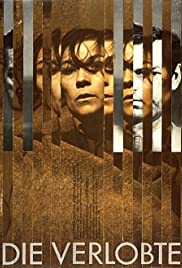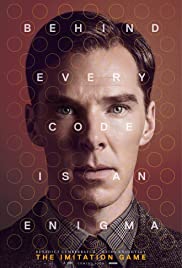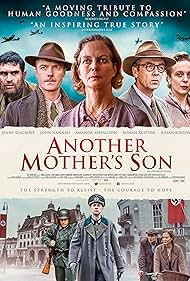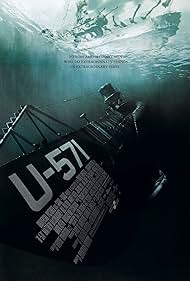La vita nascosta - Hidden Life Colonna sonora (2019)

Acquista su Amazon Riproduzione e download di colonne sonore
Vida oculta
Uma Vida Escondida
A Hidden Life
Sinossi
WWII. Hard-working husband and wife farmers Franz and Fani Jägerstätter, parents to three infant daughters, are part of the tight-knit rural community, which includes extended family members, of St. Radegund nestled in the Austrian Alps.
Along with his colleagues, Franz was sent home from basic training early in the conflict when it looked the war might be over with France's surrender to Germany. But in 1941 as the war continues, Franz is called back into military service.
The problem now is that the Austrian military members must swear loyalty to Adolf Hitler, something that he in good conscience cannot or is unwilling to do. This stance places not only him but his family at greater odds with those in the community, each person objecting not always for the same reason, and thus leads to them being increasingly ostracized and isolated.
With Fani by his side, Franz has to decide what to do, his continuing objections which they know could lead to him being imprisoned or possibly executed for treason. Beyond what he is to do, the further associated question becomes if there is a breaking point for him in the pressure placed by those around him and by the Nazis.
Scarica e riproduci l'elenco delle colonne sonore
| Suonare | Titolo | Artista |
|---|---|---|
|
La vita nascosta - Hidden Life
|
||
|
St Matthew Passion, BWV 244, Kommt, ihr Töchter
|
||
|
Symphony No. 9 in D Minor, Op. 125
|
||
|
Israel in Egypt, And Believed the Lord
|
||
|
Czech Suite
|
||
|
Kleines Requiem Für Eine Polka
|
Henryk Mikolaj Górecki:
Scrittore
Narodowa Orkiestra Symfoniczna Polskiego Radia w Katowicach: Esecutore Géza Oberfrank: Condotto |
|
|
Symphony No. 3, Op. 36
|
Henryk Mikolaj Górecki:
Scrittore
Narodowa Orkiestra Symfoniczna Polskiego Radia w Katowicach: Esecutore Antoni Wit: Condotto |
|
|
Inside the Walls
|
||
|
Approaching, Concerto Grosso Balcanico, The Little Faust
|
Arsenije Jovanovic:
Scrittore
|
|
|
Agnus Dei
|
Wojciech Kilar:
Scrittore
|
|
|
Dorje Ling
|
||
|
Sarah Was Ninety Years Old
|
||
|
Tabula Rasa
|
||
|
Psalms of Repentance
|
Alfred Schnittke:
Scrittore
|
|
|
A Hidden Life
|
James Newton Howard:
Esecutore
|
|
|
Israel in Egypt, HWV 54, Part I, No. 15 "Double Chorus: And Israel Saw That Great Work" & 16 "Chorus:
|
James Newton Howard:
Esecutore
|
|
|
Surrounded by Walls
|
James Newton Howard:
Esecutore
|
|
|
Return
|
James Newton Howard:
Esecutore
|
|
|
Indoctrination
|
James Newton Howard:
Esecutore
|
|
|
Morality in Darkness
|
James Newton Howard:
Esecutore
|
|
|
Love and Suffering
|
James Newton Howard:
Esecutore
|
|
|
Tabula rasa: II. Silentium (Jean Jacques Kantorow, Jan Söderblom, Tero Latvala, Tapiola Sinfonietta & Jouko Lai
|
James Newton Howard:
Esecutore
|
|
|
Hope
|
James Newton Howard:
Esecutore
|
|
|
Descent
|
James Newton Howard:
Esecutore
|
|
|
Czech Suite in D Major, Op. 39: I. Allegro moderato (Polish National Radio Symphony Orchestra & Antoni Wit)
|
James Newton Howard:
Esecutore
|
|
|
Kleines Requiem für eine Polka, Op. 66: IV. Adagio Cantabile (I Fiamminghi)
|
James Newton Howard:
Esecutore
|
|
|
Knotted
|
James Newton Howard:
Esecutore
|
|
|
There Will Be No Mysteries
|
James Newton Howard:
Esecutore
|
|
|
Israel in Egypt, HWV 54, Part I, No. 15 "Double Chorus: And Israel Saw That Great Work" & 16 "Chorus:
|
James Newton Howard:
Esecutore
|
|
|
Tabula rasa: II. Silentium (Jean Jacques Kantorow, Jan Söderblom, Tero Latvala, Tapiola Sinfonietta & Jouko Lai
|
James Newton Howard:
Esecutore
|
|













